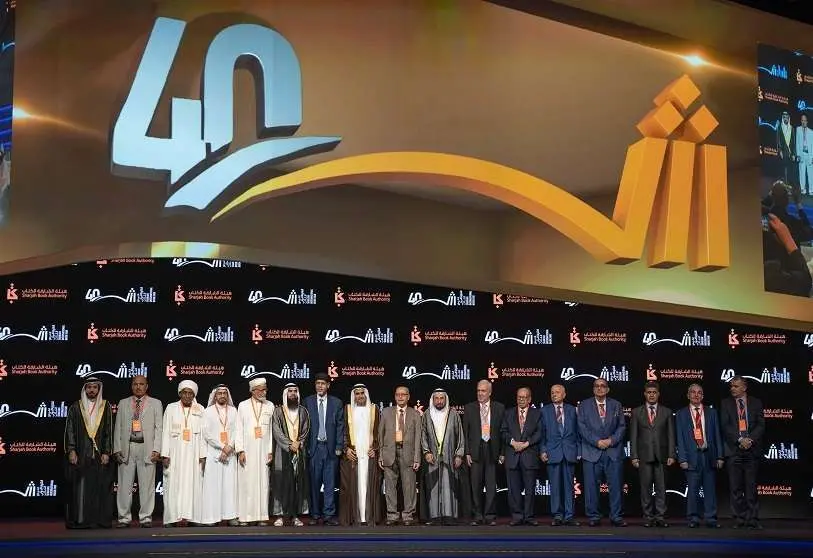Launch of the largest Arabic linguistic dictionary

The 40th edition of the Sharjah International Book Fair 2021 will be marked, among many other events, by the launch of the largest Arabic linguistic dictionary. Presented by Amir Sultan Bin Ahmed al-Qasimi himself, the 17 volumes that make up the publication contain the largest volume of information and documents relating to the history of the lexicons of the Arabic language, and its permanent transformation over the last 17 centuries, i.e. from the pre-Islamic era to the present day.
The Dictionary explains extensively the history, origins and meaning of words. It provides numerous documents on the history of the Arab nation, aims to preserve its civilisation and celebrates the major milestones of the Arabs from the Arabian Peninsula to the Atlantic. It describes the words, their semantic definition according to their historical context and their corresponding etymology. It will soon also be available through an exclusive website and a computer application.
According to the words of the ruler of the Emirate of Sharhaj himself, the Historical Dictionary of the Arabic Language aims to introduce new generations to the history of their ancestors, their geographical environment and the narration of events that are not always well known. The aim is to awaken the interest of children and teenagers in delving into this type of studies. The main objective of the new dictionary is to connect these new generations with the history of the nation through the treasure of the language, which preserves the tradition and values of the nation.

Among the parade of great writers and intellectuals at the Sharjah International Book Fair was the recent winner of the Nobel Prize for Literature, Abdul Razak Gurnah, who was the subject of an intense discussion in the huge hall of the fairgrounds.
Gurnah, whose tales of exile, loss of affection and uprootedness have been widely reported around the world, said he left his native Zanzibar, when he was just eighteen, "because I wanted to be better and develop myself as a person, even if that meant looking for another land to settle in". That goal was not easy to achieve in the UK: "One after another, publishers rejected my manuscripts for twelve years to the point where I was made to feel I wasn't good enough to write.

His first book, 'Memories of Departure' (1987) almost didn't see the light of day. "I had an idea, yes, but for twelve years I kept turning it over, rethinking it and moulding it like a wordsmith who comes up with new reflections as he goes along. Finally there was a moment of inspiration when I was convinced that the story had taken the shape I wanted to give it.
He was shortlisted for the 1994 Booker Prize for 'Paradise', a portrait of East Africa on the verge of epic change through the eyes of a twelve-year-old boy. He was also shortlisted in 2001 for 'By the sea', in which he explores the migration experience in depth. When the Swedish Academy called to tell him that he had been awarded the Nobel Prize, he thought it was a joke. But they immediately explained to him that they had thoroughly assessed the merits of his ten novels and numerous short stories, most of which deal with themes of emigration and assimilation, as well as what he calls "impermanence". At the end of the colloquium, he expressed his gratitude that "the Nobel Prize I have been awarded has made many people in many parts of the world very happy".

Another great writer, the Kuwaiti Taleb al-Refai, has been named SIBF Cultural Personality of the Year 2021. A distinction that has served him to explain how he discovered his literary vocation. "It was after reading 'Mother', the 1906 novel by the Russian Maximo Gorky, which forced me to think that the world did not end in the limits of my neighbourhood". That story about revolutionary factory workers in Tsarist Russia opened his eyes definitively to an immense universe. He would go on to devour other Russian authors such as Alexander Pushkin and Leo Tolstoy, "who had a profound impact on me long before Honoré de Balzac, Sigmund Freud and Ernesto Sábato".
The award rewards his six collections of short stories, three novels, a play and numerous literary studies, which have helped to unite Arab and Western cultures. Taleb al-Refai, moved, said: "This honours not only me but the whole of Kuwait and the whole literary fraternity in my country".










